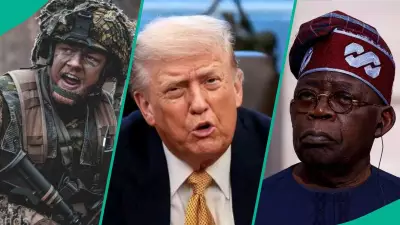
In a significant development that has captured national attention, the Federal High Court in Lagos has delivered a major blow to social media influencer and businessman Ismaila Mustapha, popularly known as Mompha. The court has dismissed his no-case submission in the high-profile ₦6 billion money laundering case brought against him by the Economic and Financial Crimes Commission (EFCC).
Court Rules Against Instagram Celebrity
Justice Mojisola Dada, presiding over the case, ruled that Mompha must enter his defense against the serious allegations leveled by Nigeria's anti-graft agency. The decision means the social media personality cannot avoid facing trial and must present his side of the story in court.
The EFCC had charged Mompha and his company, Ismalob Global Investment Limited, with multiple counts of money laundering totaling an astonishing ₦6 billion. The charges also include operating as a bureau de change without the required license from the Central Bank of Nigeria.
Compelling Evidence Presented
During proceedings, the prosecution presented substantial evidence that convinced the court a prima facie case existed against the defendant. The EFCC called several witnesses who testified about financial transactions and activities that allegedly violated Nigeria's money laundering laws.
Legal experts note that the dismissal of a no-case submission typically indicates the court believes the prosecution has presented sufficient evidence to require the defendant to answer the charges. This development significantly increases the pressure on Mompha's legal team as they prepare their defense strategy.
What This Means for the Case
The ruling represents a crucial victory for the EFCC in their ongoing battle against high-profile financial crimes in Nigeria. It also sends a strong message to other individuals involved in similar activities that the long arm of the law will eventually catch up with them.
As the case proceeds to the defense phase, all eyes will be on the Lagos courtroom where Mompha will have to counter the substantial evidence presented by the anti-corruption agency. The outcome of this case could have far-reaching implications for how financial crimes involving social media influencers and celebrities are prosecuted in Nigeria.





